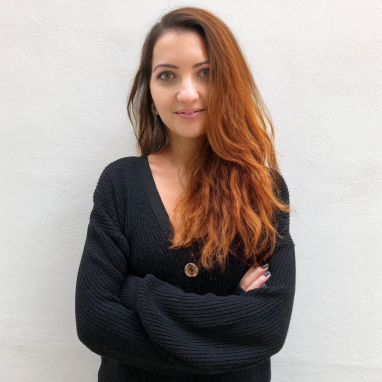
Assistant Professor
Mechatronics Engineering Dept.
Kadir Has University
D-202
Cibali Mah. Fatih, İstanbul (Turkey)
Biography
I am an Assistant Professor in the Mechatronics Engineering department at Kadir Has University. My awards include the 2013 TUBITAK International Travel Award, 2017 IEEE World Haptics Best Paper Award, 2022 IEEE International Conference on Robotics and Automation (ICRA) Travel Award, and 2022 TUBITAK International Travel Award. I have recently received funding to continue my research from TUBITAK International Fellowship for Outstanding Researchers (2232-B) for 3 years and TUBITAK Bilimsel ve Teknolojik Araştırma Projelerini Destekleme Programı (1001) for 3 years.
My research interests include haptics, extended reality environments, virtual interaction methods, wearable robotics, and robot-assisted rehabilitation.
Education
Bachelor Degree (BS) – Electrical and Electronics Engineering, Yeditepe University (Istanbul, TR).
Master’s Degree (MS) – Mechatronics Engineering, Sabancı University (Istanbul, TR).
Doctor of Philosophy (PhD) – Perceptual Robotics, Scuola Superiore Sant’Anna (Pisa, IT).
Research Experience
Academic Intern – Robotics Research Laboratory, Yeditepe University (Istanbul, TR).
Research Assistant – HMI Lab, Sabancı University (Istanbul, TR).
Research Assistant – Perceptual Robotics, Scuola Superiore Sant’Anna (Pisa, IT).
Visiting Researcher – Multimodal Simulation Lab, Universidad Rey Juan Carlos (Madrid, SP).
Post-doctoral Researcher – Perceptual Robotics, Scuola Superiore Sant’Anna (Pisa, IT).
Post-doctoral Researcher – Charm Lab, Stanford University (Stanford (CA), USA).
Research
My research focuses on developing interaction strategies between humans and computers addressing the sense of vision and sense of touch. Topics of particular interest are: (1) Haptic Devices: Designing, modeling, and controlling robotic systems that allow human operators to perceive information about virtual, teleoperated, or remote operations in a believable and efficient manner. (2) Extended Reality Environments: Designing and modeling different interaction methods during virtual/augmented reality that would improve the user experience and user performance. Application areas include simulation and training, social scenarios, rehabilitation, and education.
Teaching
- Fall 2022 – Technical Drawing (MTE211), Computer-Aided Technical Drawing (IE205), Human-Computer Interaction (CMPE476)
- Spring 2022 – Probability and Statistics for Engineers (GE204), Probability and Statistics (FENS200), System Dynamics and Control Project (MTE 394), Scientific Discoveries and Engineering (KHAS1002)
- Fall 2021 – Probability and Statistics for Engineers (GE204)